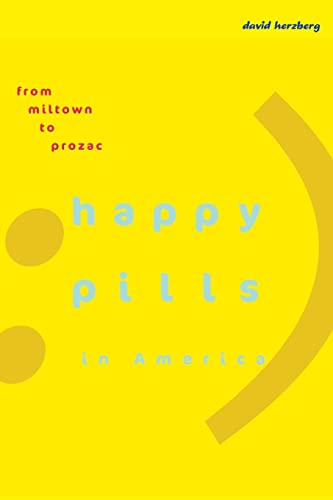Creating Mental Illness

Valium. Paxil. Prozac. Prescribed by the millions each year, these medications have been hailed as wonder drugs and vilified as numbing and addictive crutches. Where did this "blockbuster drug" phenomenon come from? What factors led to the mass acceptance of tranquilizers and antidepressants? And how has their widespread use affected American culture?
David Herzberg addresses these questions by tracing the rise of psychiatric medicines, from Miltown in the 1950s to Valium in the 1970s to Prozac in the 1990s. The result is more than a story of doctors and patients. From bare-knuckled marketing campaigns to political activism by feminists and antidrug warriors, the fate of psychopharmacology has been intimately wrapped up in the broader currents of modern American history. Beginning with the emergence of a medical marketplace for psychoactive drugs in the postwar consumer culture, Herzberg traces how "happy pills" became embroiled in Cold War gender battles and the explosive politics of the "war against drugs"―and how feminists brought the two issues together in a dramatic campaign against Valium addiction in the 1970s. A final look at antidepressants shows that even the Prozac phenomenon owed as much to commerce and culture as to scientific wizardry.
With a barrage of "ask your doctor about" advertisements competing for attention with shocking news of drug company malfeasance, Happy Pills is an invaluable look at how the commercialization of medicine has transformed American culture since the end of World War II.
| Country | USA |
| Brand | Johns Hopkins University Press |
| Manufacturer | Johns Hopkins University Press |
| Binding | Paperback |
| ItemPartNumber | 2 Line drawings, black and white; 14 Hal |
| ReleaseDate | 2010-10-01 |
| UnitCount | 1 |
| EANs | 9780801898143 |